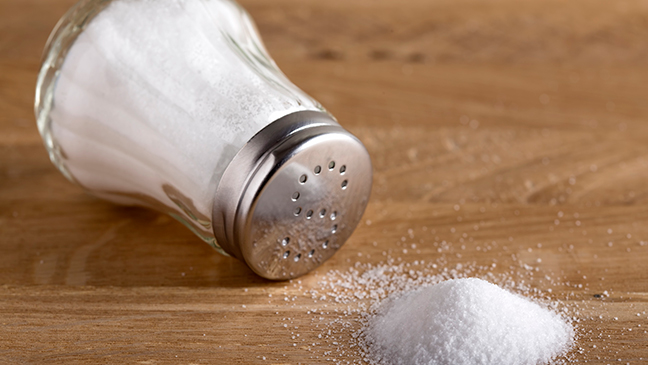
“You are the salt of the earth” (Matthew 5:13).
The Jesus-following life doesn’t begin with a long list of “you ought to be’s.” It starts with the words “you are.”
This is a big deal. People are typically prepared to hear a track coach or a military general or a chemistry teacher or even a Bible-waving preacher set out the territory that has to be conquered. “Here’s what you’re going to have to do, and it’s not going to be easy.” We are used to being challenged to become what we should be.
But Jesus comes at things from the other direction. Before he tells us what to do, he tells us who we are. Rather than urging us to become what we ought to be, he simply states we should be what we already are.
According to the Sermon on the Mount, if you’ve thrown in your lot with Christ, you are exactly what the world needs.
But since modern Americans have become anxious about their sodium intake, is it really a happy thing to be identified as salt? It is indeed. When Jesus’ original listeners heard him say they were the salt of the earth, as many as five things might have come to mind.
First, salt was a symbol of purity. The salt crystals that we shake onto our green beans are almost totally unmingled with other compounds. Salt was valuable enough in the ancient world to be used as a form of payment. To this day someone might say, “He’s worth his salt.” The word “salary” itself is directly related to those little crystals.
Second, Jesus’ mention of salt connoted flavoring. Salt provided seasoning in a nearly spice-free diet. It’s hard to argue with our own experience: Salt makes almost everything taste better.
We are meant to be the spice that flavors society; that takes the edge off the world in which we live; that brings joy and pleasure and a heightened sense of taste wherever we go.
Third, salt was the finest preservative known in the ancient world. Salt, and little else, kept good food from going bad. In the pre-refrigeration era, salt was just about the only way to keep fish and meat safe to eat.
Fourth, salt was known to advance healing. Most of us have experienced that momentary sting, but then the soothing comfort, of plunging a skin wound into a saline solution like the Atlantic Ocean.
Finally, salt kills. Those of us who live in a part of the world where streets are routinely salted during the winter months are aware of sodium chloride’s ability to help melt snow and ice – and to leave behind a “death zone” where weeds and grass will struggle to grow next spring.
Being in Jesus’ presence on a regular basis has the effect of checking some of the malignant behavior in those around us.
Purity, flavoring, preserving,healing, and cleansing. That’s what it means to be the salt of the earth.
The problem, of course, is that we’re not much good to the earth if we spend most of our hours inside a salt container – even a beautiful one, like a church sanctuary or a cozy study in your home where you can hole up with a stack of good books.
Our grandparents called their little bottles of seasoning salt cellars. We must get out of the cellar and into a salt shaker – into any ministry or relationship that challenges us to do what we’ve always been called to do.
Our call is to be a healing, cleansing, preserving, and flavoring presence wherever we go.
Jesus, after all, would definitely be the first person to say, “Please pass the salt!”
